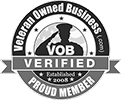Halfway through the year is an essential time to examine your financial situation and determine if you need to make any changes to your strategies or increase contributions. A mid-year financial review can help ensure that you’re headed in the right direction financially and help plan for tax season. Here’s a list of tips to help you make the most out of your mid-year financial review.
Assess Your Portfolio’s Performance.
It’s essential to review each investment’s performance and take action to improve your portfolio’s future performance. While you can’t control market performance, you can take action to help ensure that your investments align with your goals. During this time, review performance net fees, and discuss other investment vehicles and strategies appropriate for your situation with your financial professional.
Understand Your Tax Situation.
Understanding how you can max out your retirement savings accounts or give charitable donations to help lower your taxable income is essential. Also, determine whether you qualify for any new tax credits or deductions. Since taxes can get complicated, you may need help from your financial and tax professionals to help you prepare for tax season before the end of the year by initiating tax-advantaged strategies now.
Evaluate Your Financial Plan.
As you review your financial plan, make sure you’re saving enough this year and make adjustments to help keep you on track for retiring on your retirement timeline. You may consider increasing your pre-tax retirement savings contributions at work or contributing more to your other retirement savings accounts.
If you’re already retired, your financial professional can help determine whether your spending down plan is appropriate for the current economic environment or if you should consider other strategies.
Review Your Savings Goals.
Since your ability to save will play a vital role in your financial success, review your savings goals and determine if your goals have changed. If possible, increase your savings rate each year to help compound your money over time.
Examine Your Budget.
A budget helps you track how much money is coming in and going out each month. When you meet with your financial professional for your mid-year review, examine your budget for the past six months and use it to design your budget for the next six months. Reviewing your budget will help you determine where you can cut any unnecessary expenses.
Talk To Your Financial Professional
Need help knowing where to start when it comes to evaluating your financial situation? Speak to your financial professional today to get started!


